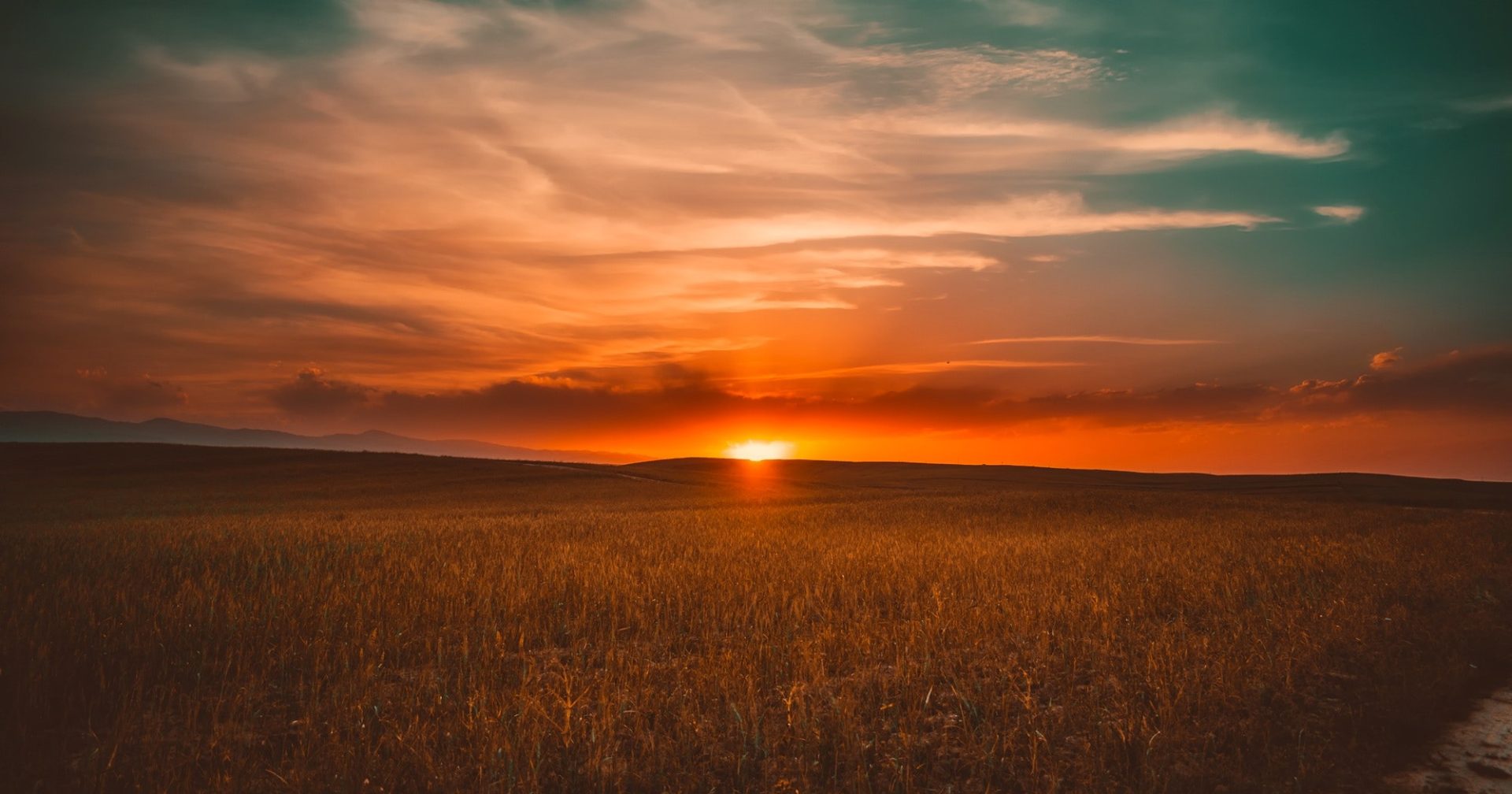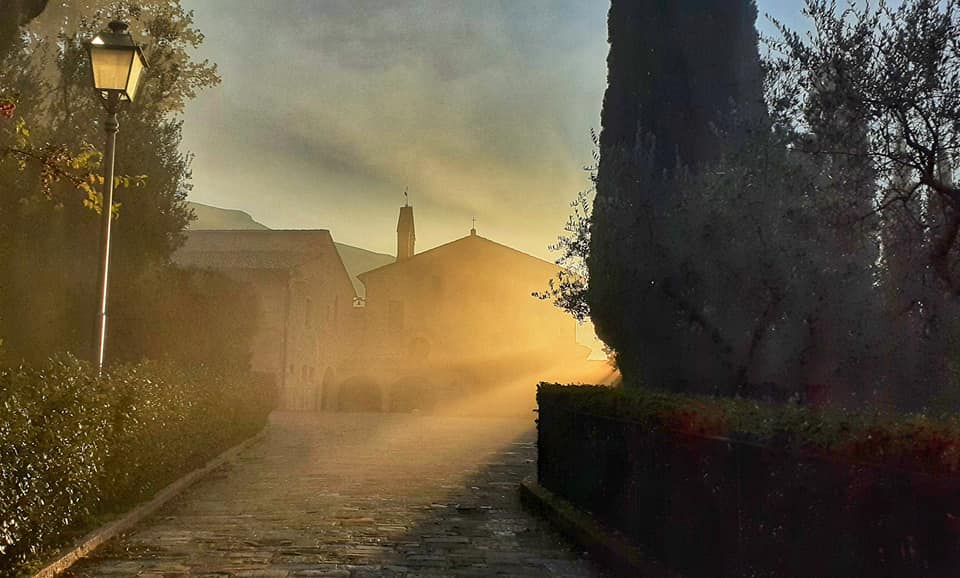
Sunday 9th April
EASTER SUNDAY – YEAR A
Matthew 28,1-10
Alleluia, alleluia, alleluia.
Give thanks to the Lord for he is good,
his love endures forever
Let Israel say: “His love endures forever.”
Alleluia, alleluia, alleluia!
The Lord’s right hand is lifted high
The Lord’s right hand has done mighty things
I will not die but live,
and will proclaim what the Lord has done.
Alleluia, alleluia, alleluia!
The stone the builders rejected
has become the cornerstone
the Lord has done this,
and it is marvelous in our eyes.
Alleluia, alleluia, alleluia!
Laudato Si’, Praise to you my Lord! Alleluia! With hearts overflowing with Easter joy, today we contemplate the central event of our faith: the resurrection of Christ! We are at the culmination of the history of salvation within the liturgy of the Easter triduum. We have come from the profound journey of Laudato Si’ Lent, moving away from the grave of death, the grave of ecological sins, into new life, a life of ecological conversion. We invite you to slow down, take the time to delve into and pray about these verses of the Word. The reading of passages from Matthew’s Gospel during these solemn days was focused on the location of the facts, immersed in creation. An olive grove, a mountain and a garden. Today we find ourselves in the garden, following on from the silence of Mount Golgotha. Here we are touched by the phrase: “I know you are looking for Jesus“. Jesus is not to be sought among the dead, because he is the Living One! We can meet him every day, in our daily lives, if we only learn to live using his logic, stripping ourselves of the human prejudices that give us a distorted view of the face of God.
What is resurrection? Perhaps it would be appropriate to ask ourselves from time to time. Today is a special day for all of us and we may want to dedicate some of our attention to this concept of faith that we often risk taking for granted. We are Christians and we believe in the Risen Jesus. If Jesus had not risen, what would we believe? It is clear that this is the central event in the history of our faith. But one wonders: do we really believe it or are we like the Sadducees who denied the resurrection? To the Sadducees, Jesus answered: “He is not God of the dead but of the living. You are greatly misled.“ That’s the mistake that arises “because you do not know the scriptures or the power of God“. This is God’s great promise from the Old Testament and reaffirmed by Jesus. And yet, often, it seems as if we only believe what we see in the light of our fears. We are afraid of death and therefore we think that “as long as there is life there is hope”. The resurrection is much more than that.
It’s not about reanimating a corpse after all this happened to Lazarus who, months or years later, died again. Nor is it about reincarnation where the body becomes a sort of prison for the soul. Instead the resurrection concerns the body and the soul together because they are brought to life by the spirit of God.It is God who bequeaths resurrection which allows us in this self same body to put on a ‘form’ of God while being manifested in the virtues and gifts of the Spirit. The beautiful thing is that we can live as resurrected even now, today, if we feel the full joy of this promise in our hearts!

““The first day after the Sabbath” means the first day of the new creation, the first of the Sabbaths. With the resurrection comes the Lord’s Day. Every Sunday, the first day of the week, is therefore the memory of Christ’s resurrection. A single day in which it is always sunny after we have lived through a single long night in which even the day has darkened. When the sun is within us there is no alternation between day and night. The women went to the garden “as the first day of the week was dawning“, literally in the middle of dawn, when the sun began to brighten the night sky. They had had to wait for the end of Saturday, their day of rest, and as soon as they could they went immediately to the sepulcher, in this garden.
The word sepulcher, in Greek μνημεῖον (= mneméion) has common roots with memory (μνημεῖον) death and the Fates (Μοῖραι), it is the concrete sign of the awareness of death that accompanies the life of humanity. Through the tomb, each of us remembers the destiny that unites all humans, that is, the “humandi” who are destined to return to the humus, to the earth. Remembering our origins (Memory) we are all made of earth and are destined to return to the earth. A stone, on each tomb, therefore separates those who are already dead from those who are not yet dead. Our entire culture may be based on the fear of death, or on the experience of women in this garden. If for us everything ends in death and we only return to the earth then we risk living a greedy life devoured by fear. If we remember that, in addition to the earth, Adam and Eve lived thanks to the vital breath of God, then we also return to God and so the perspective changes.
“He has been raised just as he said” sounds like an invitation to all of us today at the end of this ‘Walk with Laudato Si’’ which each Lenten Sunday has led us to a more attentive look at Scripture. More generally, it is an invitation to everyday life, accompanied by the memory of the words of life that we have received in recent years, at mass in our parish,by following ways of deepening our knowledge of scripture, Laudato Si’ Circles, spiritual exercises, Laudato Si’ retreats, pilgrimages and personal encounters with those who have helped us experience the beauty of the Word of God. Today we are all invited to remember.
Remembering, from the Latin recŏrdari, derives from the prefix re- and from cordis (literally “bringing back to the heart”). Perhaps it is not so much an act of the mind but rather an act of the heart because the heart was considered the seat of memory. So today we don’t have to make a philosophical or intellectual gesture but in remembering we are called to make the strings of our heart vibrate showing our most spontaneous and beautiful humanity. What should we bring to the heart today? Why does this lead us to believe in the resurrection?
“Hastily left the tomb with fear and great joy”. Each of us today is called to be like these women, who go early in the morning, who out of love prepare aromas, taken by surprise yet overcome fear and who trust an announcement given by angels. They react with both fear and great joy. How many angels do we meet in our life! Today we are invited to listen to words of life, to remember these words that keep us alive. Only in this way do we emerge from anonymity and in fact only after this act of remembrance does the evangelist tell us the names of these women, who were “Mary Magdalene and the other Mary “. Women who believed that love is stronger than death!
Good news such as this fills your life up just as when someone who loves you deeply, tells you of a success or positive news. The heart fills with joy. Today, we are called to rejoice and proclaim. We are called to pass on by word of mouth this wonderful news that has been passed on for two thousand years, men and women telling other men and women this Good News.
St. Francis, in the stupendous paraphrase to Our Father, reminds us:“O Most Holy Our Father: Creator, Redeemer, Consoler and Savior. Who art in heaven in angels and saints, enlightening them to knowledge, because you, Lord, are light; inflaming them with love, because you, Lord, are love; by making your abode in them and filling them with bliss, because you, Lord, are the highest, eternal good, from which all good comes and without which there is no good” (FF 266). We thank the Lord for the immense gift of his death and resurrection for us and for creation, and for teaching us to trust ourselves. Let us pray on this feast day that this new creation may be a seed of joy for us to bring into our everyday life.
Have a happy and Blessed Easter
Laudato Si’!






